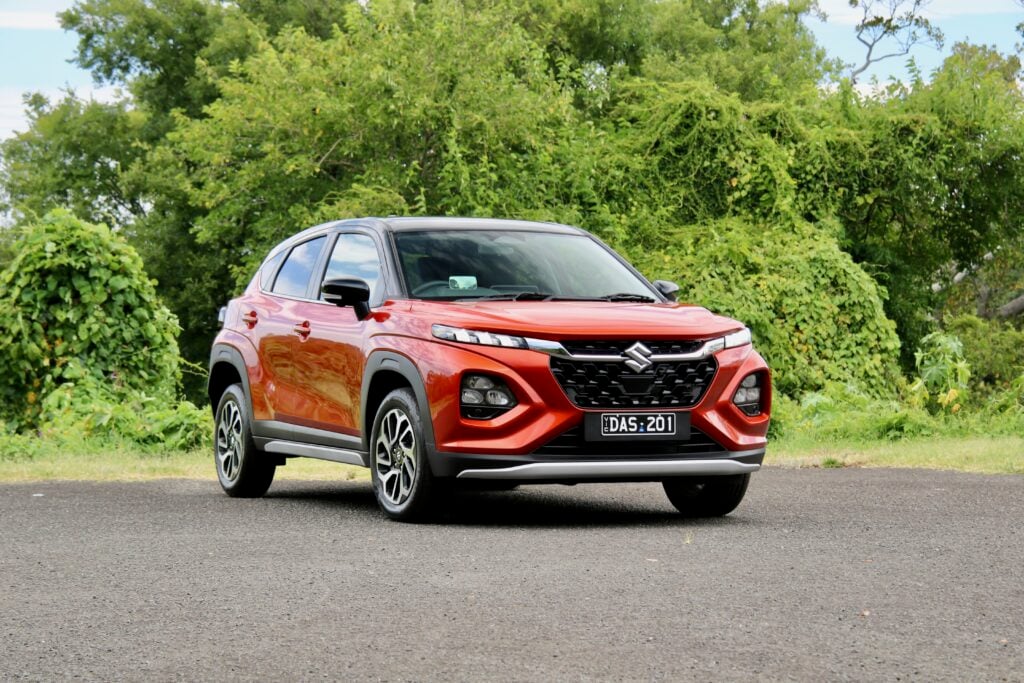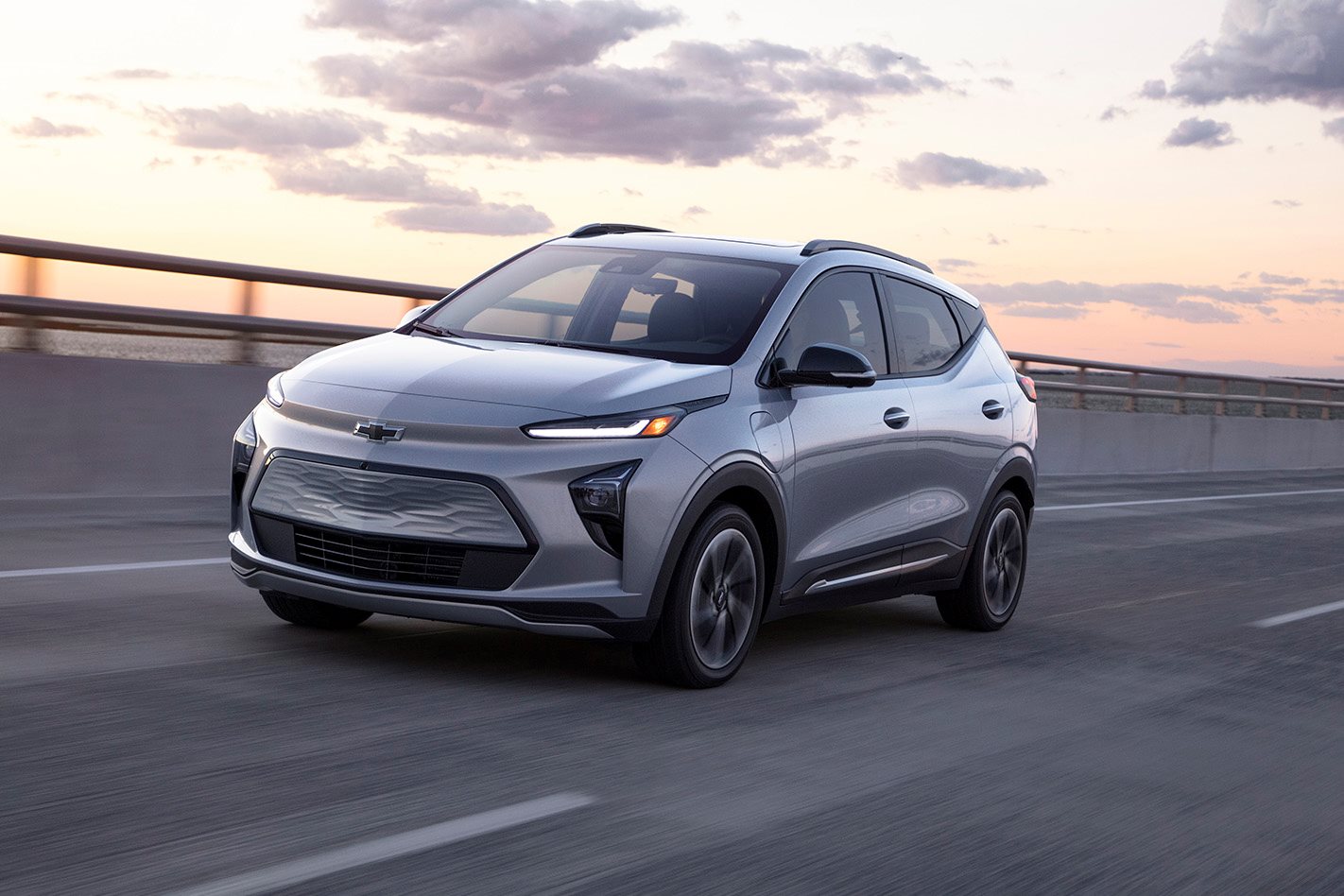
In what certainly won’t be the last Holden what-if, Chevrolet has revealed the updated 2022 Bolt EV hatchback and its all-new Bolt ‘EUV’ crossover sibling
With SUV proportions, the BOLT EUV (we assume that stands for Electric Utility Vehicle… because there aren’t enough motoring acronyms) is part of GM’s plan to launch 30 new EVs ‘globally’ by 2025.
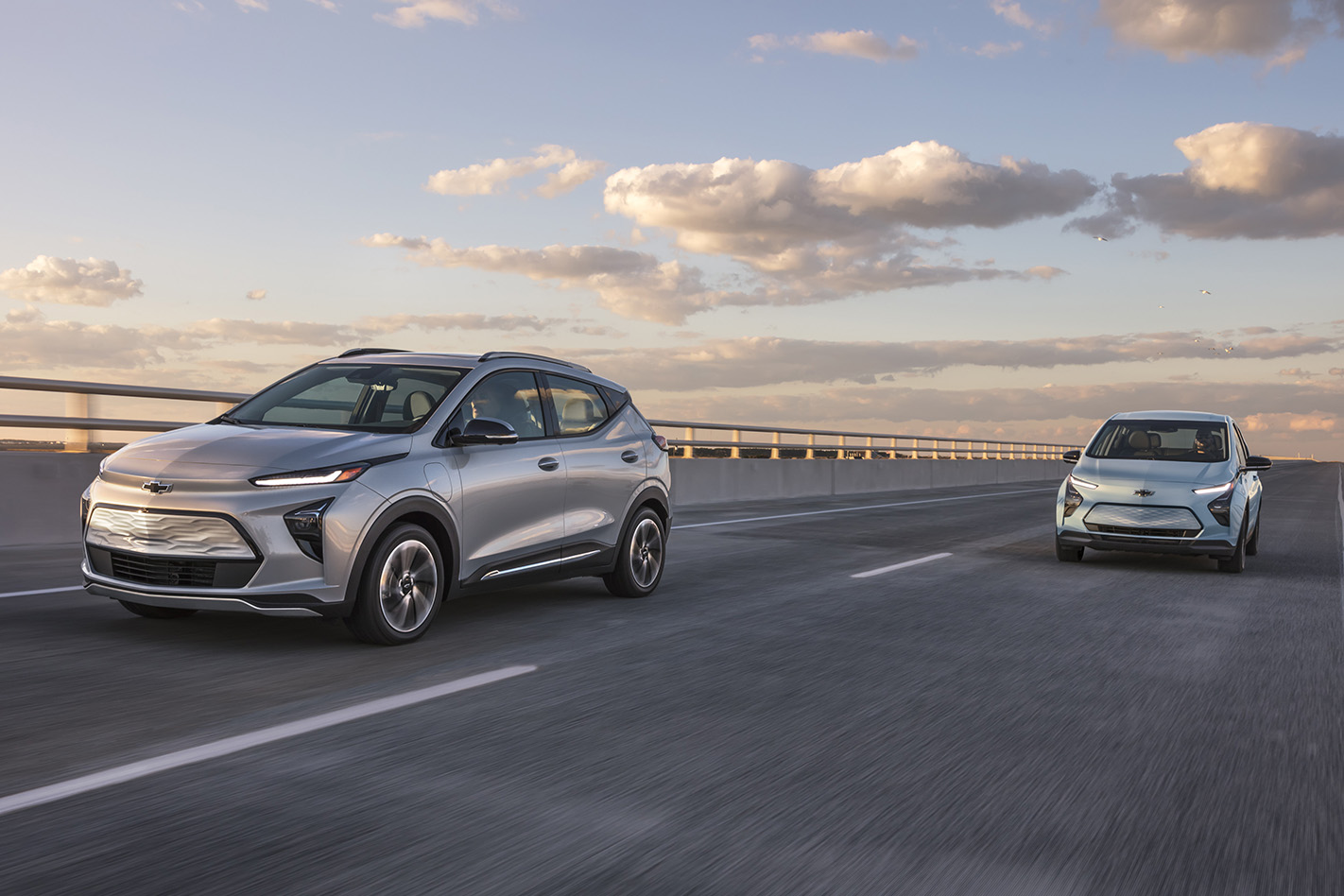
Along with broadening GM’s electric vehicle lineup, the Bolt EUV will also be the first Chevrolet to offer Super Cruise, which the company claims is the industry’s first true hands-free driver assistance system.
While both Bolt versions share the same architecture, each has unique exterior sheet metal, with the EUV being about 15cm longer.
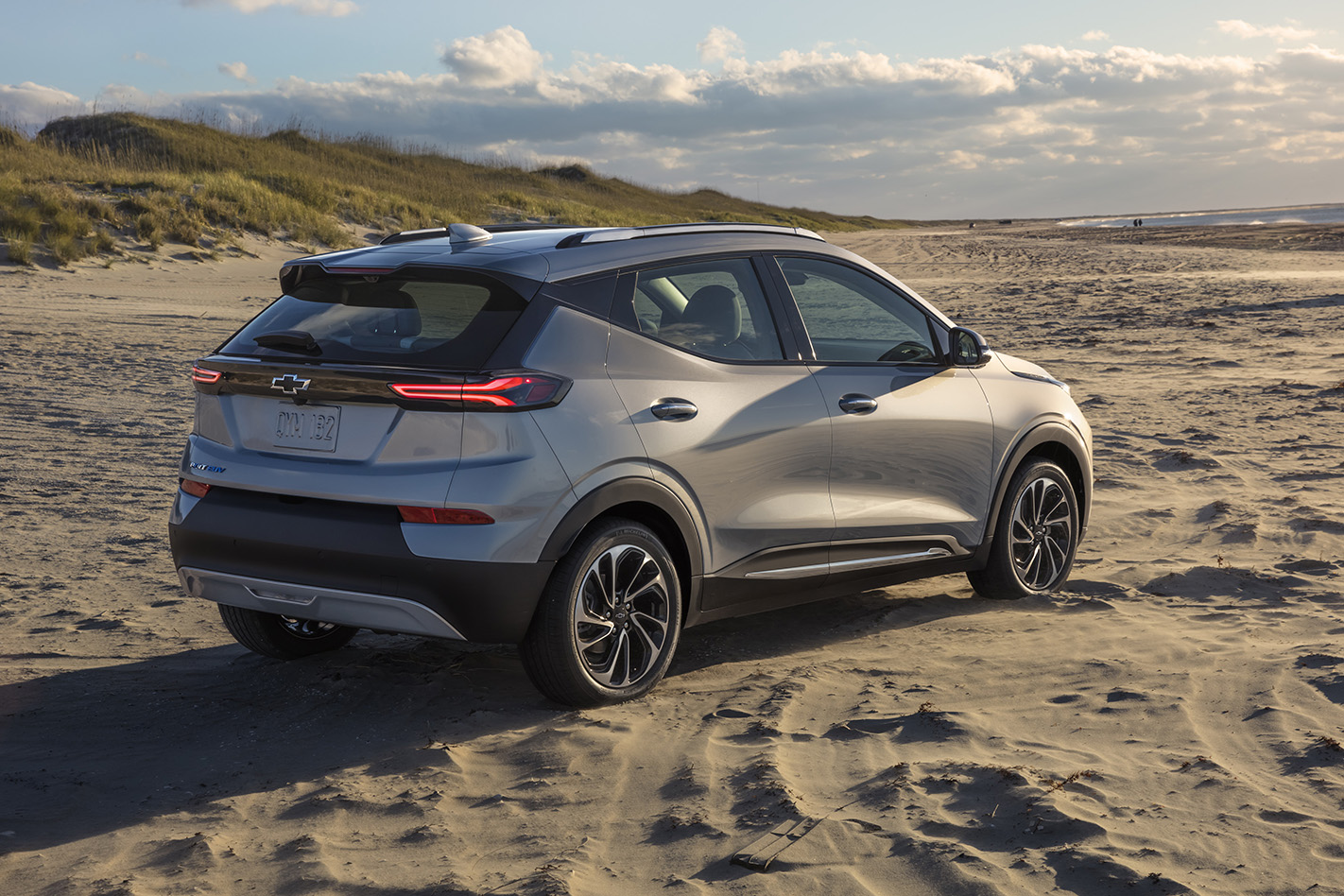
The EUV also features a distinctive front-end with a sculpted face and a centre crease line that runs from the front fascia through the bonnet – along with seamless horizontal body lines, while roof rails also reinforce the SUV aesthetic.
Meanwhile, the Bolt EV design updates include a new, more upright front fascia, and new front and rear lighting signatures.
Inside, both vehicles feature new instrument panels, vehicle controls and seats, and a 10.2-inch touchscreen and integrated climate controls.
The infotainment screen features real-time displays, with more details available on the 8.0-inch instrument screen behind the steering wheel.
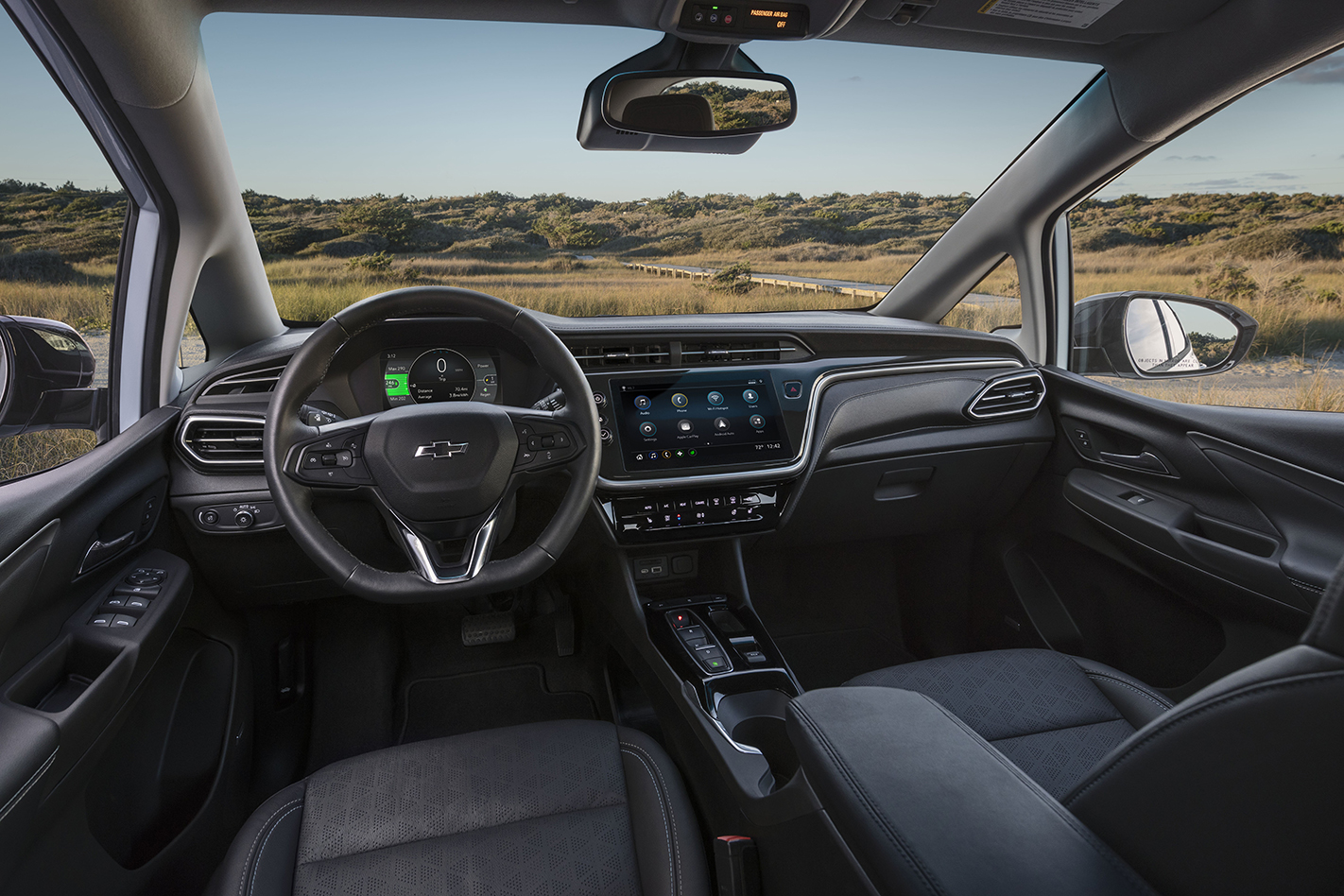
There’s also a new, electronic gear shift design that uses pull toggles and push buttons to free up more interior space, and includes a one-pedal driving button that controls the regenerative braking system.
The Bolt EUV expands on the Bolt EV’s roomy cabin, with an additional 76mm in rear legroom.
Super Cruise autonomy
The Bolt EUV Super Cruise system integrates advanced technology that can be used on 320,000km of enabled roads in the US and Canada and features a driver attention system and precision LiDAR map data.
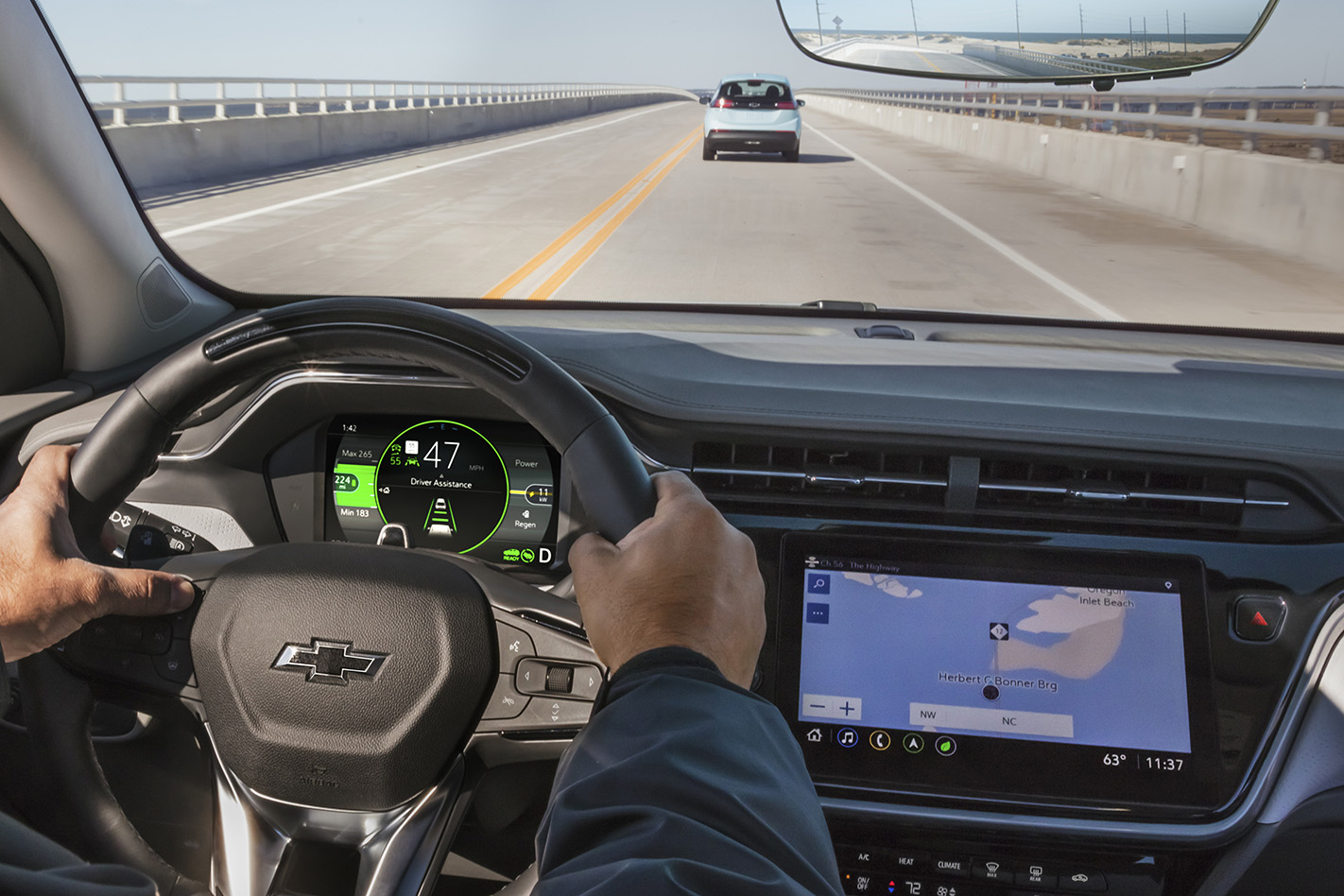
The driver attention system uses a small camera located on the top of the steering column, and works with infrared lights to determine where the driver is looking whenever Super Cruise is in operation.
Other advanced driver assist systems include autonomous emergency braking, forward collision alert and lane keep assist with lane departure warning, rear cross-traffic alert, and adaptive cruise control.
EV powertrain
Both cars are powered by an advanced 65kWh lithium-ion battery pack and a 150kW single-motor drive unit that produces 360Nm of near-instant torque.
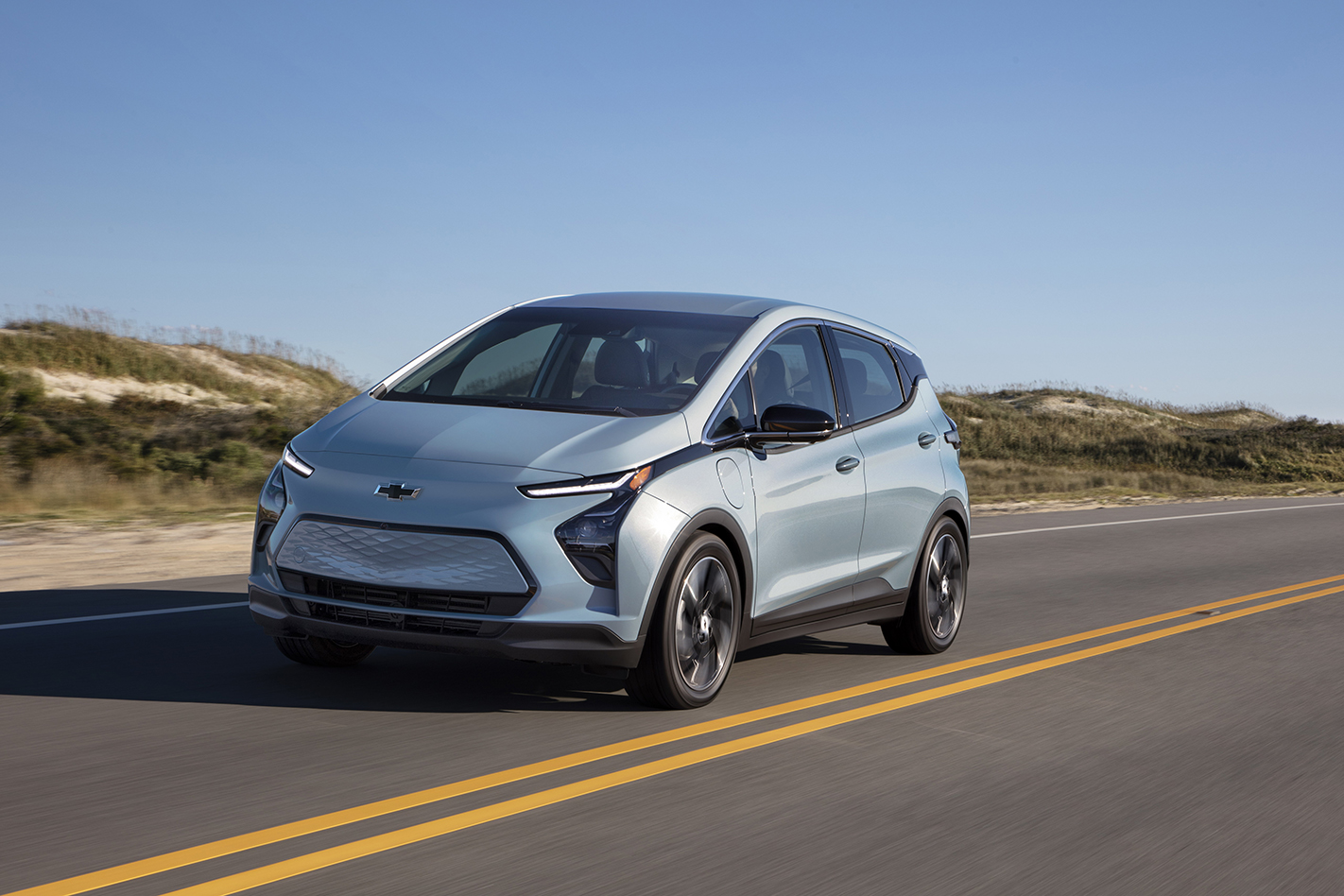
In the right conditions, the powertrain will take the Bolt EV up to 416km between charges and the Bolt EUV 402km.
The battery system features active thermal management, which uses coolant to maintain the battery at its ideal operating temperature.
Standard DC fast public charging capability enables the Bolt EV and EUV to add up to 160 km and 152km of range in 30 minutes respectively.
Pricing
Impressively, the starting price for both vehicles is less than the outgoing MY20/21 Bolt EV.
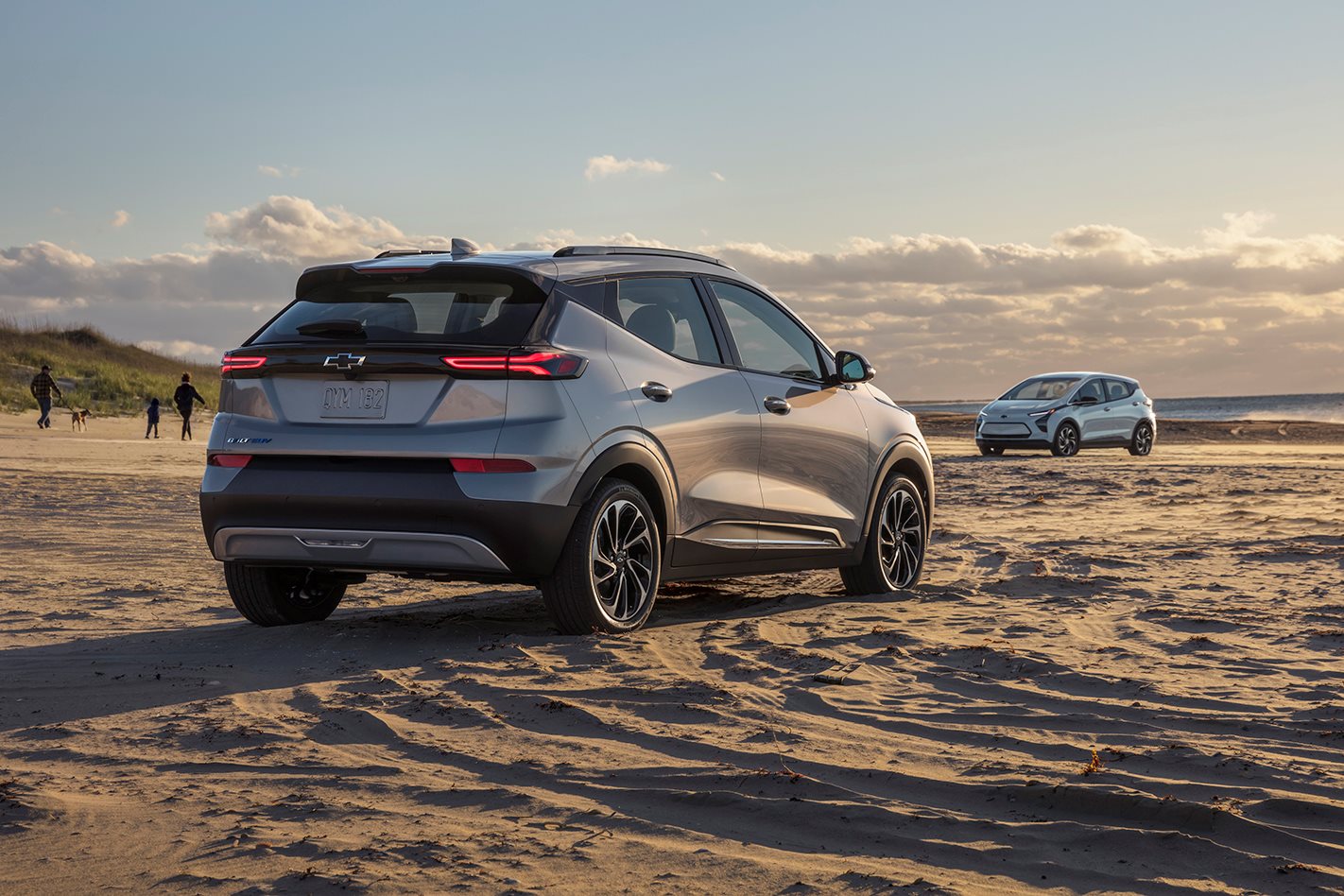
For the American-market 2022 model-year, Bolt EV hatch pricing starts at US$31,995 (A$41,000), with the EUV priced from $33,995 (A$43,600).
Even when factoring in import costs, this pricing would have made them comparable with the Nissan Leaf (A$49,990) and Hyundai Kona Electric (A$60,740).
Australian connection
One reason it’s shame we’ll never see the Bolt on Australian roads is because it actually stemmed from an electric vehicle concept designed here by GM’s Australian design centre and went into production in 2017.
Now, of course, with GM all-but out of Australia – apart from its ties to the shrunken GMSV outfit here – it’s less likely than ever we’ll ever see the Bolt models here.
The Bolt’s BEV2 platform, despite being developed for electric vehicles and thus represents a simplified architecture, is nonetheless engineered for left-hand-drive only.
And, with demand relatively high in its home market – where it sold 20,754 examples in 2020 – there would be little motivation for GM to bother looking beyond its borders.
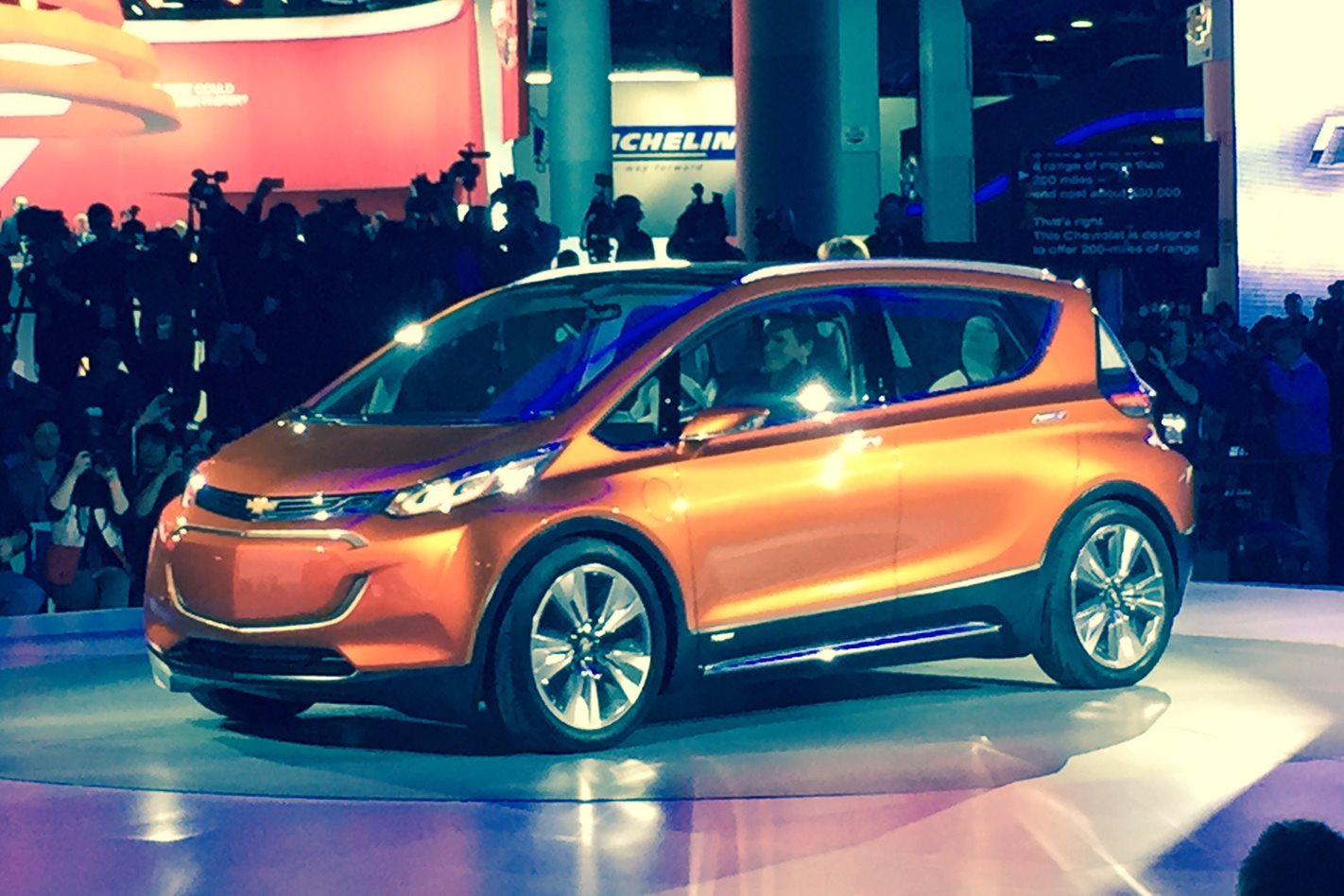
The Chevrolet Bolt concept car, which was unveiled at 2015 Detroit Motor Show was built in Australia and included design input from GM’s Korean studio as well as the US.


